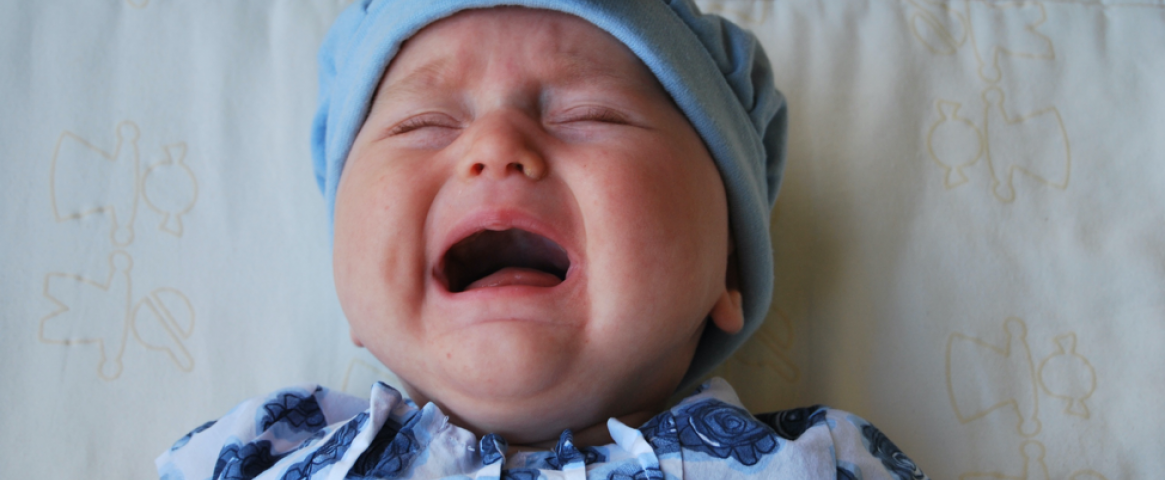By Lidia Luna Puerta
Increased isolation, reduced access to face-to-face appointments, and decreased emotional support in the recent months of Covid-19 is making life harder for new moms. If in usual times 1 in 7 women in the United States experience postpartum depression in the year after giving birth, in the Covid-19 era, the risk of common “baby blues” evolving into postpartum depression is bigger than ever. But a new, low-cost, easily accessible method of preliminarily diagnosing postpartum depression could help mothers take matters in their own hands. Thanks to Gianluca Esposito, a researcher in psychology from Nanyang Technological University Singapore, and his team, it could be as simple as recording an infants’ cry with a dedicated app, which would analyze the sample and detect whether the mother is depressed.
The tool is simple: all mothers have access to their infants’ cry. This is babies’ way of communicating when their needs aren’t met or when they’re in pain, allowing their caregivers to know when they need attention. But not all shrieks are equal. In fact, in 2016, Esposito and his team discovered that babies of mothers with postpartum depression cried differently.
“Some characteristics of infants’ cry, in particular the pitch - the main marker of distress – differ,” Esposito claimed. “An infant’s cry is very dynamic,” he continued. He suggested that in a matter of weeks infants can adapt their cry to their mothers’ responsiveness, which is typically lower for mothers suffering from postpartum depression.
“These behavioural adaptations can be detected automatically based on infants’ cry with a high degree of accuracy”, said Esposito. The researchers used recordings from 56 babies whose mothers had depression and 27 babies whose mothers did not have depression, and created an algorithm to detect abnormal cries. Their algorithm, which could be easily integrated in a mobile app, could raise a red flag about postpartum depression in mothers.
“This non-invasive approach would help those mothers who suffer from undetected postpartum depression due to reasons such as social stigma or no access to care”, said Esposito, stressing that 60% of mothers who suffer from postpartum depression never receive support. Despite the potential for this technology, Esposito warns that in its current form it isn’t sufficient to definitively diagnose postpartum depression. Such a diagnosis, he says, will always require a clinician. In addition, he expressed discomfort over “privacy issues in investigating health-related problems on the cloud”. Moreover, the model is not refined enough yet; it is only informed by Caucasian families and the algorithm may have to be adapted to different behaviors from different ethnic groups. However, the findings are promising compared to current methods, which often rely on self-reported questionnaires and interviews, which can be biased. A tool built based on the analysis of shrieks easily and instantly captured by all mothers - at little to no cost - to look for warning signs could be revolutionary. Such a tool could then also be used to improve clinical diagnosis and thereby enhance the quality of life of both infants and mothers.
Lidia Luna Puerta is a Ph.D. Candidate at the Lee Kong Chian School of Medicine in Singapore with a M.Sc. in Materials Engineering. Her interests stretch from participatory research methods to neuroscience and bioengineering. She has worked as a visiting researcher at the Patient Experience Research Centre at Imperial College London exploring innovative methods of patient and public engagement and as Graduate Research Assistant at CNRS International NTU Thales Research Alliance in Singapore studying graphene scaffolds for neural growth. Follow her on Twitter @L_Luna_P or email her at lidi_moon@hotmail.com.
This story was produced as part of NASW's David Perlman Summer Mentoring Program, which was launched in 2020 by our Education Committee. Luna Puerta was mentored by Chanapa Tantibanchachai.




